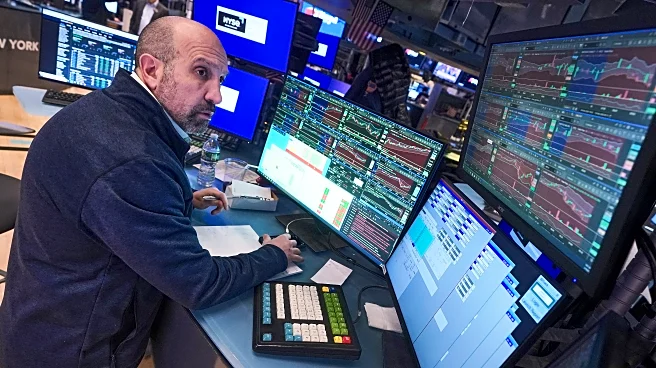What's Happening?
Chevron, a major U.S. oil company, is engaging in preliminary discussions to expand its presence in European regasification terminals. This move is part of Chevron's broader strategy to increase its footprint in the liquefied natural gas (LNG) market. The U.S. has emerged as Europe's leading LNG supplier following a significant reduction in Russian gas imports due to geopolitical tensions stemming from Russia's invasion of Ukraine in 2022. Chevron plans to export 7 million tons of LNG annually from the U.S. starting in 2026, enhancing its trading operations. Freeman Shaheen, Chevron's president of global gas, emphasized the importance of regasification for European national security and mentioned ongoing talks with European entities regarding both existing and new infrastructure. The European Commission has urged member states to eliminate reliance on Russian fossil fuels by 2027, making LNG a crucial component of Europe's energy strategy.
Why It's Important?
Chevron's expansion into European regasification terminals is significant as it aligns with Europe's strategic shift away from Russian energy dependence. This development could bolster energy security across the continent, providing a stable and diversified supply of natural gas. For Chevron, this expansion represents an opportunity to solidify its position in the global LNG market, competing with industry giants like Shell and TotalEnergies. The move also highlights the growing importance of LNG in meeting Europe's energy demands, particularly as the region seeks to transition to more sustainable energy sources. The potential increase in regasification capacity could facilitate greater energy independence for European nations, reducing geopolitical risks associated with energy supply.
What's Next?
Chevron's discussions with European partners may lead to concrete agreements on regasification infrastructure development. As Europe continues to pivot away from Russian gas, Chevron's strategic investments could play a pivotal role in shaping the continent's energy landscape. The company is also exploring options in the Eastern Mediterranean, including floating LNG solutions to expand Israel's Leviathan gas field. These initiatives could further enhance Chevron's global LNG portfolio, providing critical energy resources to regions like Egypt and Jordan. The outcome of these discussions and potential infrastructure projects will be closely watched by industry stakeholders and policymakers.
Beyond the Headlines
Chevron's expansion efforts in Europe could have broader implications for global energy markets. By increasing LNG capacity and diversifying supply sources, Chevron may contribute to stabilizing energy prices and reducing volatility. Additionally, the focus on regasification as a national security measure underscores the intersection of energy policy and geopolitical strategy. As Europe seeks to reduce its reliance on Russian energy, Chevron's role could influence diplomatic relations and energy cooperation between the U.S. and European nations.











